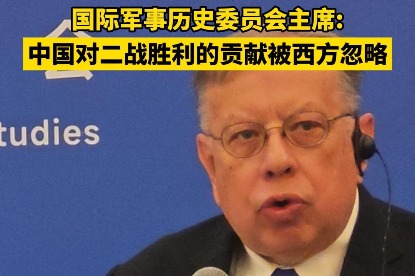Vigilance and coordination needed to address impact of Fed's interest rate cut: China Daily editorial

As was widely expected, the US Federal Reserve cut its key interest rate by 25 basis points on Wednesday citing concerns over rising unemployment, and indicated it would do so twice more this year. This is the de facto US central bank's first rate cut since December 2024. It lowers its short-term rate to a range between 4.0 percent and 4.25 percent.
The decision could not have been an easy one to make. With the US administration's high tariffs fueling inflation risks and the US job market weakening, the US' principal monetary policymaking body faced competing pressures. The Fed typically holds rates at higher levels to rein in inflation — which remains stubbornly elevated in the US and is expected to end the year at 3 percent, well above the Fed's 2 percent target — yet to support the labor market it also has to slash rates.
So the Fed faced a dilemma: cutting rates too aggressively could trigger an inflation rebound, while cutting too slowly may fail to effectively support the job market. The situation leaves it with little room for maneuver. In Fed Chair Jerome Powell's words, the Fed now is in a "meeting-by-meeting situation" when it comes to further rate reductions.
That the US economy has moderated markedly and needs to be propped up is obvious, with the Fed forecasting 1.6 percent growth for 2025, as compared with a 2.8 percent pace achieved last year.
Moreover, hiring has ground almost to a halt in recent months, with the unemployment rate reaching a four year high of 4.3 percent in August. "It's really the risks that we're seeing to the labor market that were the focus of today's decision," Powell said at a news conference after the Fed announced the cut.
The ramifications of the Fed's move warrant careful examination by Chinese policymakers, as its consequences are likely to be felt across the global economy, including in China.
While the motivation behind the Fed's decision is to stimulate the US economy by encouraging borrowing and investment, the broader implications are multifaceted and complex.
One of the most significant consequences of the Fed's rate cut is its impact on the US dollar. Lower interest rates tend to weaken the currency.
For China, this presents both opportunities and challenges. On the one hand, a weaker dollar could lead to increased consumption and demand in the US, potentially boosting China's exports sector even if the Chinese exports become more expensive in the US market. On the other hand, a depreciating dollar may exert downward pressure on the renminbi, complicating China's monetary policy and exchange rate management.
Moreover, the Fed's decision could trigger a wave of competitive rate cuts by other central banks, as countries strive to maintain their export competitiveness. This could lead to a global environment of low interest rates, which might inflate asset bubbles and increase financial instability.
Another area of concern is the impact on global capital flows. Lower US interest rates may drive investors to seek higher returns in emerging markets, including China. While this influx of capital can stimulate economic growth, it also poses risks of overheating and increased volatility in financial markets. Chinese policymakers will need to pay more attention to maintaining a balance between supporting growth and preventing financial risks. This makes it imperative for them to continue boosting domestic consumption and investing in technology, which will help reduce China's reliance on exports and thus mitigate the impact of a stronger currency on the economy.
The ripple effects of the Fed's decision will undoubtedly be felt globally. Given the potential spillover effects of the Fed's decision and the interconnected nature of global economies, international coordination among policymakers also needs to take the effects of the decision on board. As China plays an important role in the global economic landscape, its active participation in dialogue with international counterparts can help foster coordinated efforts to mitigate potential risks and enhance regional and global economic stability.
For China, the challenge lies in navigating the many-faceted consequences of the Fed's decision with a balanced approach that supports growth while safeguarding financial stability. As the world watches the unfolding economic dynamics, it is clear that global cooperation and prudent policymaking will be key to ensuring stability.


































